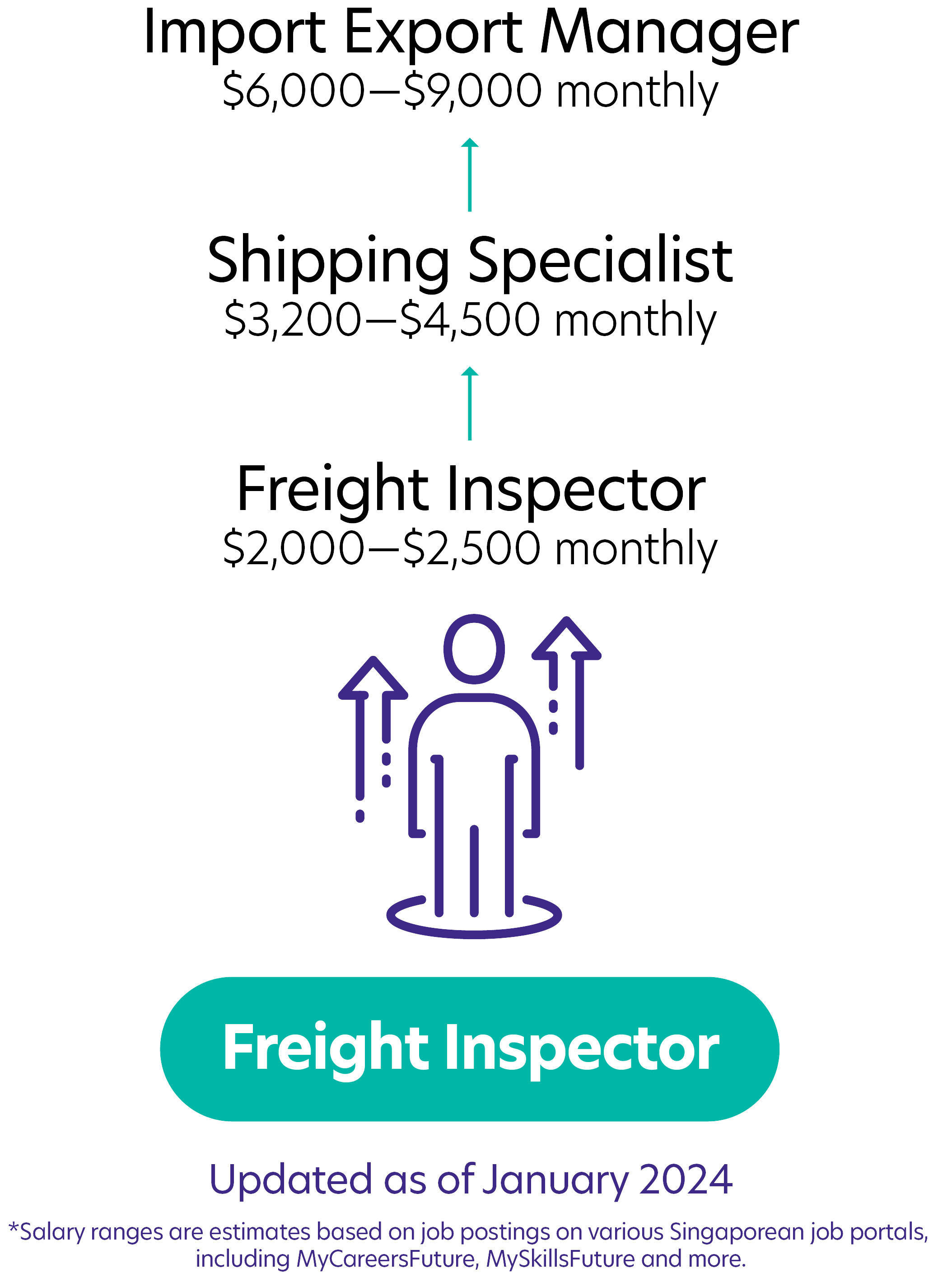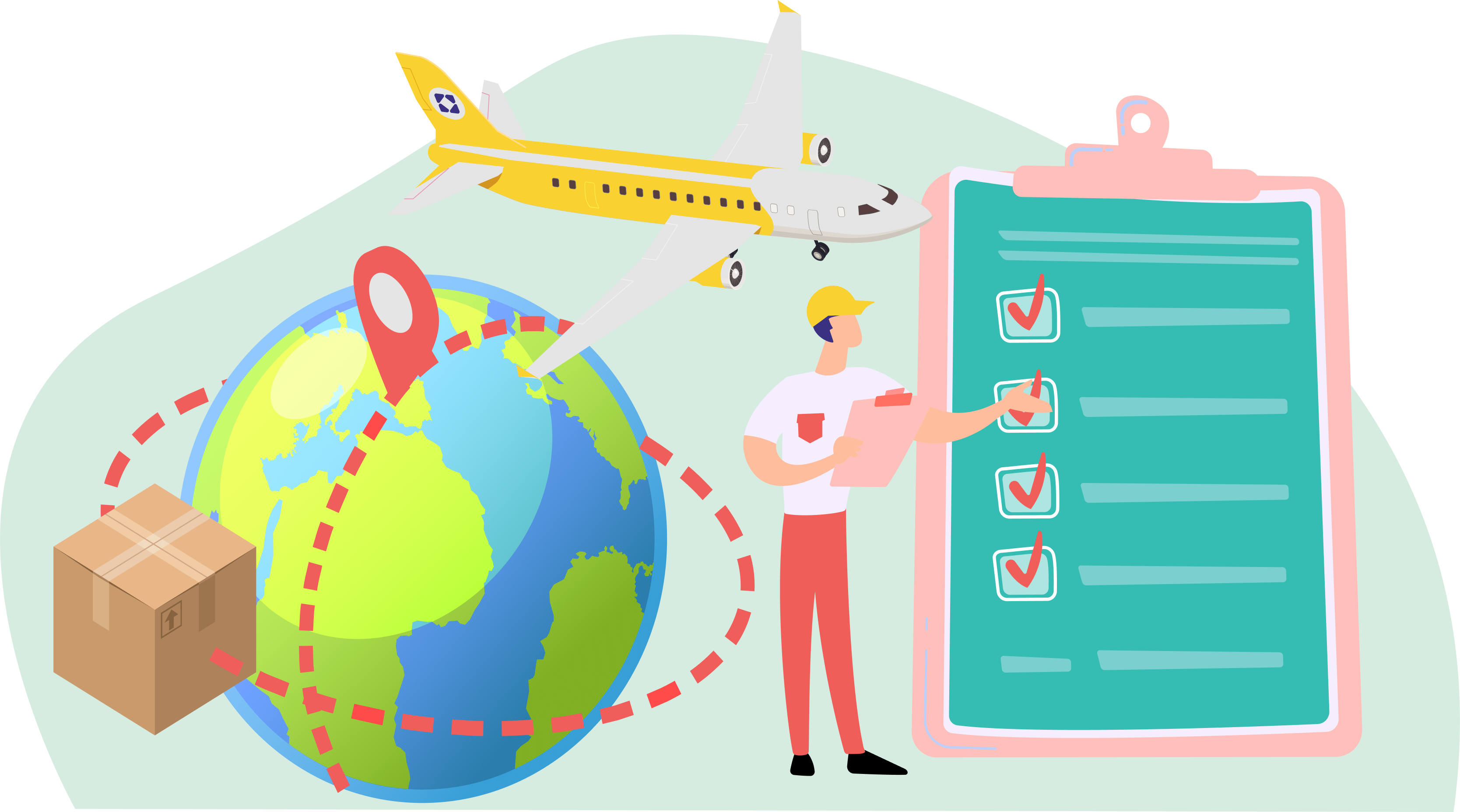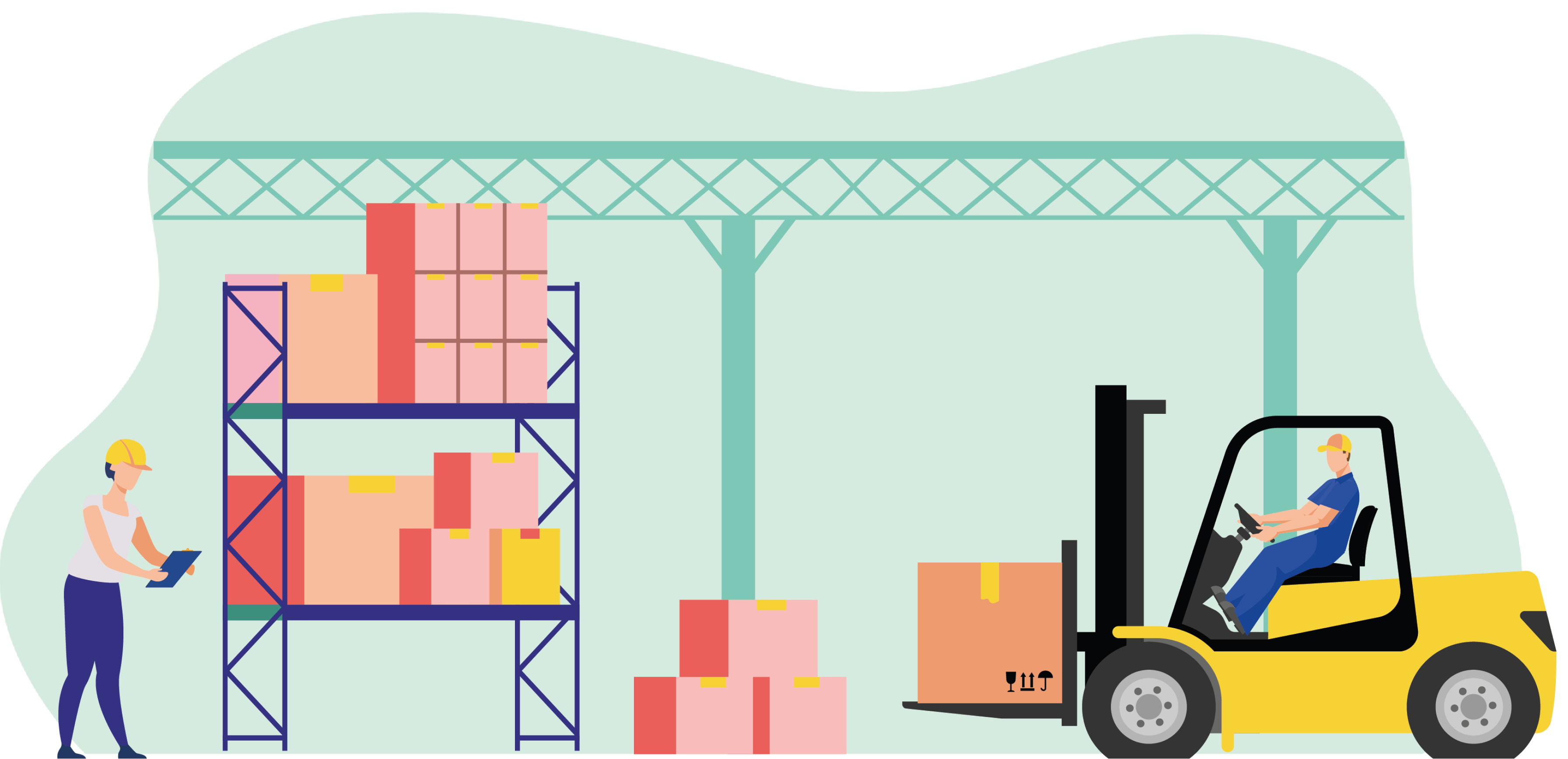
Freight Inspectors, also known as Incoming Quality Inspectors, are responsible for examining imported goods. They ensure that the goods are handled according to regulations.
Freight Inspector Job Description
- Inspect goods for freight forwarding documents.
- Assess risk factors that may reduce efficiency.
- Ensure compliance with Workplace Safety and Health (WSH) practices.
- Enforce operational policies, standards, and procedures.
- Conduct inspection of incident management initiatives.
- Coordinate with Customs Officials to facilitate the smooth clearance of goods.
- Utilise specialised equipment to measure and verify cargo dimensions and weights.
- Generate detailed inspection reports for both internal and external stakeholders.
- Monitor and assess the condition of cargo to prevent damage during transportation.
Note
Freight Inspectors are hired by shipping firms, airlines and maritime freight services. These Inspectors have additional duties, like ensuring the transport of live animals in pressurised air freighters.
What you should know about Freight Inspector jobs in Singapore
Nature of Work
You must master Geometry, Trigonometry, and Calculus to calculate load distribution, capacity, and crate weights to ensure safe transport.Key Advice
Fluency in English is vital for communicating internationally during global transport; multilingual skills aid in supervising diverse teams.-
Entry RequirementsEntry Requirements
- Minimally Nitec, Certificate in Microsoft Office Skills, NTC Grade 2 or equivalent.
- Must possess a valid driver's license and be able to operate inspection vehicles.
- Certification or training in Logistics, Supply Chain Management or related fields is preferred.
- Physical fitness to perform manual inspections and lift packages as required.
- Familiarity with customs regulations and freight documentation is a plus.
- Availability to work in shifts, including nights, weekends and holidays as needed.
-
Possible PathwayPossible Pathway

Skills you need to pursue a Freight Inspector career in Singapore
Mathematics
Proficient in Mathematics, used for calculating dimensions, volumes and financials in various contexts.Knowledge of Transporting Goods
Exceptional understanding of Logistics, routes and regulations for moving items.Knowledge of Safety Measures
Expertise in protocols to prevent accidents and ensure workplace safety.Communication
Able to express ideas clearly and understand others for effective communication.Decision Making
Adept in critical thinking and decision making, optimising solutions in complex situations.Self-Management
Disciplined in organising tasks, managing time, and self-discipline.Related Job Roles
Explore Other Programmes
Browse AllYou have bookmarked your first item!
Find it in My Discoveries with insights on your interests!










